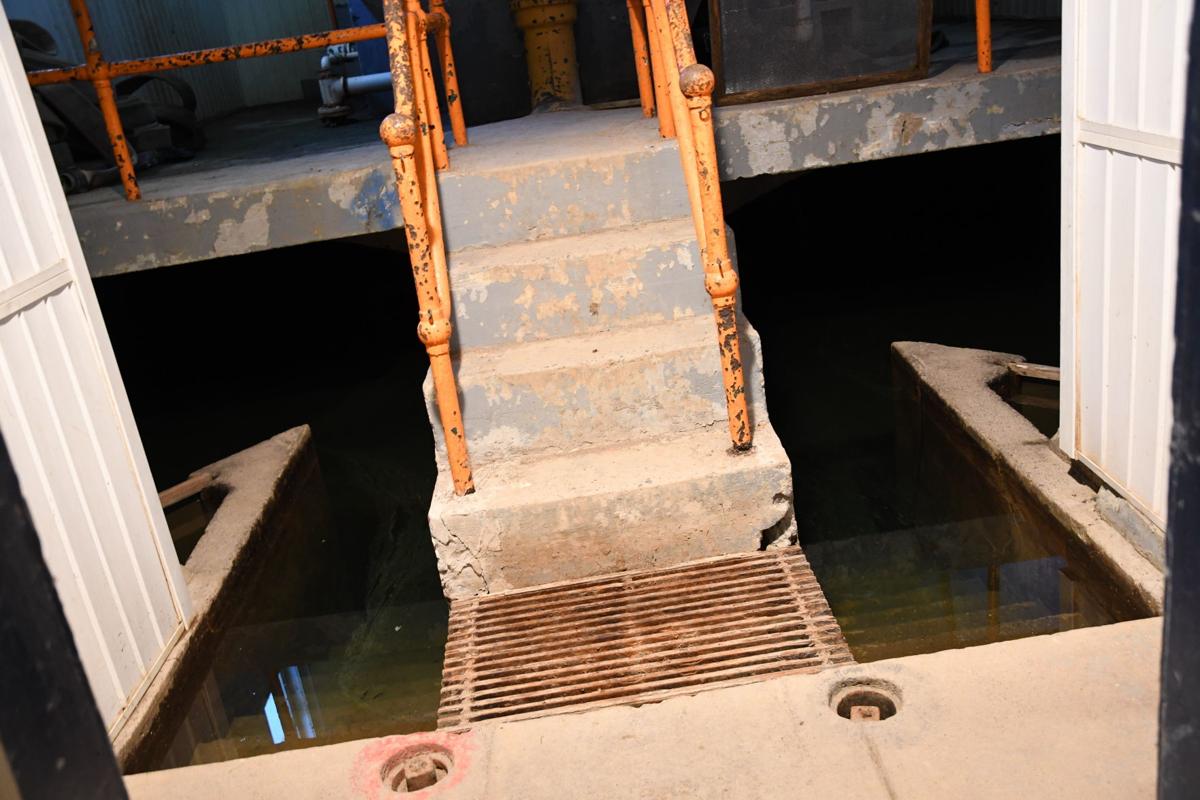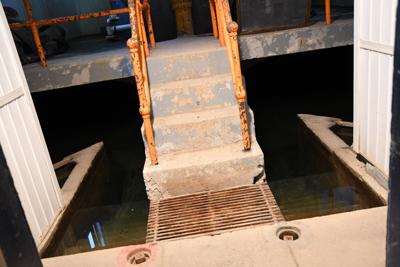The Cayuga County Health Department is encouraging residents to store drinking water in case of an emergency following confirmation of an "unprecedented" toxin level in the raw water entering the city of Auburn's filtration plant.
A raw water sample collected at the Auburn plant Tuesday measured at 17.7 parts per billion for harmful algal bloom toxins. The city's treatment system successfully removed those toxins, so the water coming out of taps remains safe to drink.
The previous high recording for toxicity level in Auburn's raw water was 8.37 parts per billion in a sample collected in August 2021.
Both the city of Auburn and the town of Owasco draw drinking water from different parts of Owasco Lake, which has experienced late summer and early fall harmful algal blooms for several years.
The health department said low levels of toxins were also discovered in a raw water sample taken Tuesday at the Owasco treatment plant, but at a quantity too small to measure. The treated water had no toxins detected.
People are also reading…
The monitoring of raw water samples will continue at both plants, with plans for another collection at Auburn's facility on Thursday.
Although the drinking water remains safe to use, the health department said the public should take steps to be prepare in case it becomes unusable. The department urges residents to keep a gallon of clean water in storage per person in the household, and to have a three-day supply of that storage amount.
"Now is a good time to make sure you and your family have enough water stored in case there was a water emergency," the department said.
The latest from the Cayuga County Health Department.
Owasco Lake water treated by the city of Auburn serves city residents as well as public water customers in the towns of Aurelius, Fleming Water District 6, Throop, Mentz, Brutus, Montezuma, Sennett, Springport Water District 2 and the villages of Port Byron, Weedsport and Cayuga.
In addition to serving its residents, Owasco provides drinking water to residents in the Fleming Consolidated Water District.
The stored water supply recommended by the health department can come from the tap, the department said, as long as it's kept in "clean, food grade plastic or glass containers that seal tightly." Keep the supplies out of the sunlight, and replace them every six months. Store-bought water should have the New York State Department Health Department certification on the product label.
"All bottled water should be stored in a cool location away from direct sunlight.
For more information, visit or call (315) 253-1560.
This video from the state Department of Environmental Conservation provides guidance for identifying harmful algal blooms, which are beginning to surface in state waterways for the summer season. Visit for more information about HABs in New York state.



















